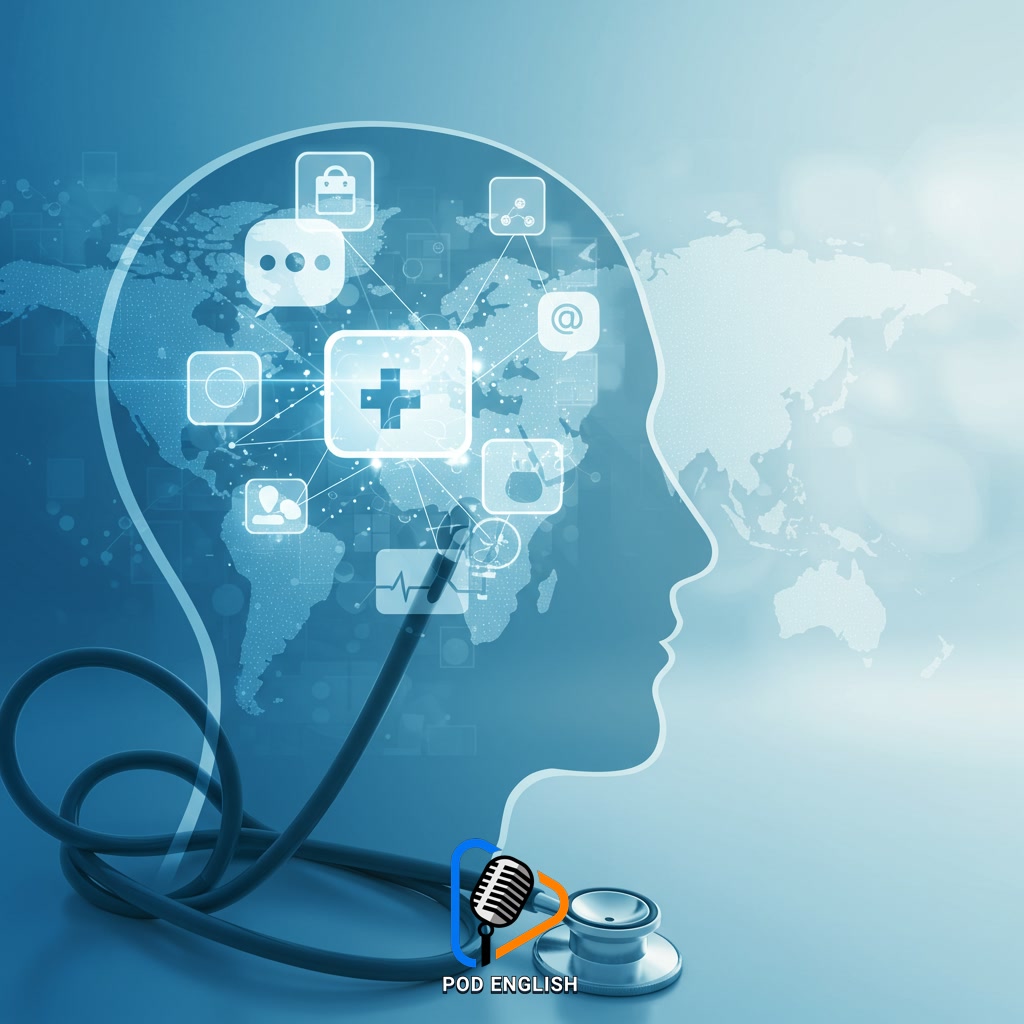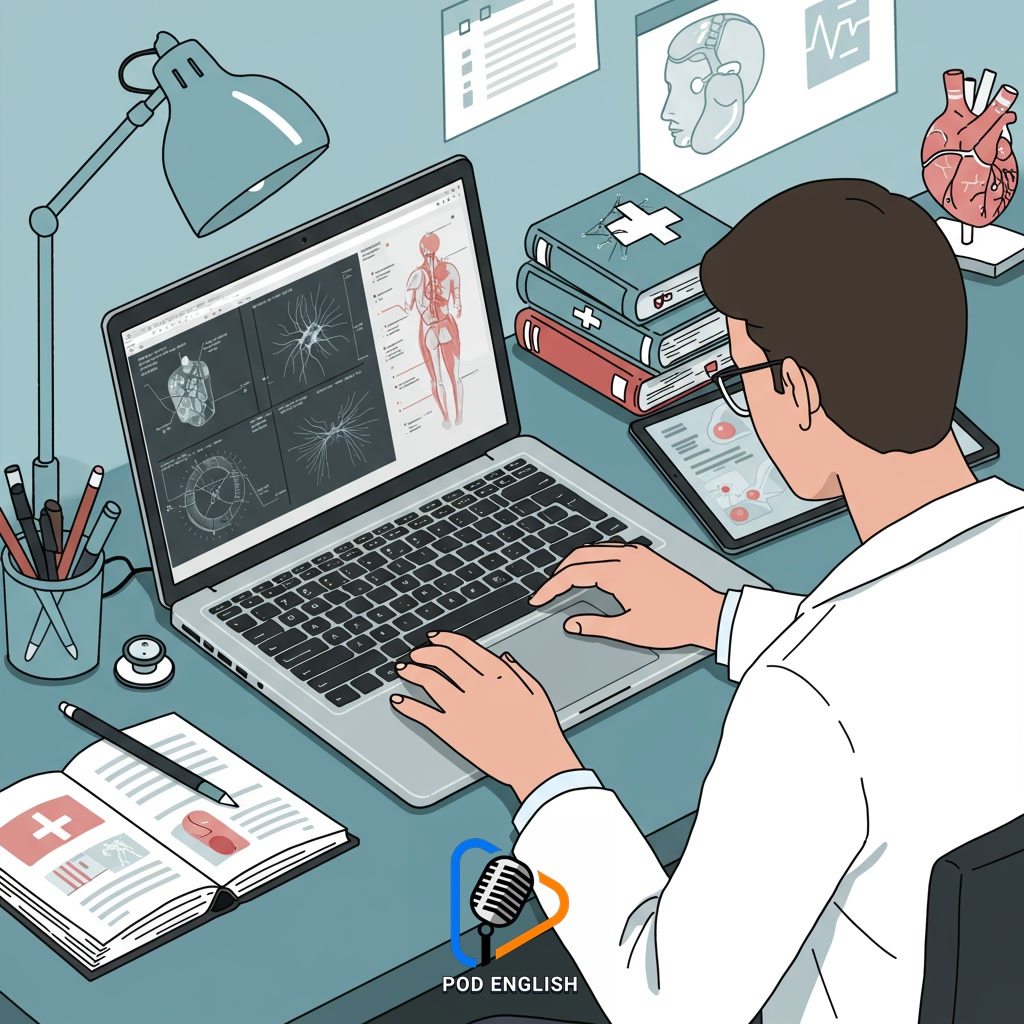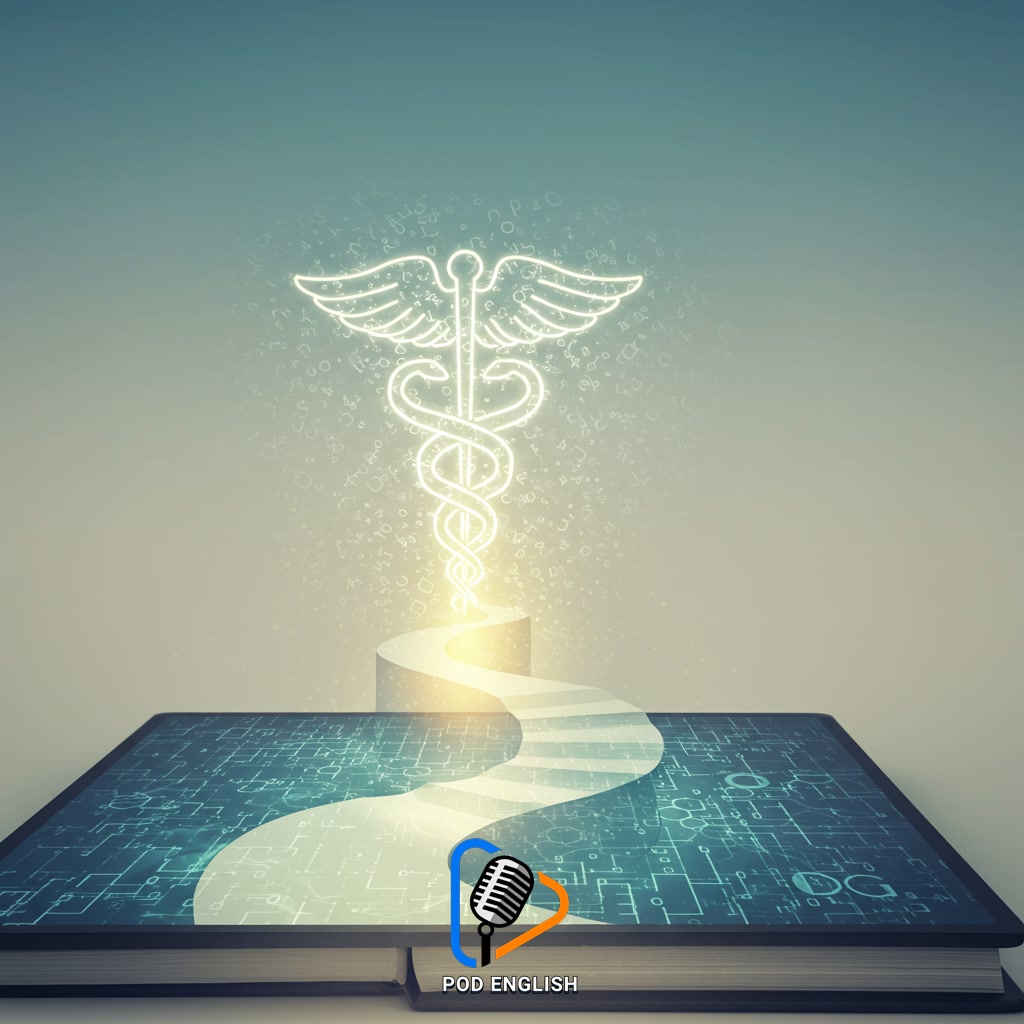Learn English
Unlock Your Medical Career with English Skills

This content explores how mastering English is vital for professionals in the medical field. It details the benefits of strong language proficiency for career development and global collaboration. Improving your English abilities is presented as a key step to unlocking new opportunities and achieving success in your medical career.
Table of Contents
- Section 1: Why English is Indispensable in the Global Medical Field
- Section 2: Key English Skills Every Medical Professional Needs
- Section 3: Effective Strategies for Learning Medical English
- Section 4: How English Proficiency Elevates Your Medical Career Opportunities
- Section 5: Embarking on Your English Learning Journey Today
Section 1: Why English is Indispensable in the Global Medical Field
English serves as the lingua franca of the global medical community, making it absolutely indispensable for professionals in this field. Accessing the latest medical research is paramount, and the vast majority of cutting-edge studies, clinical trials, and publications in prestigious journals are published in English. Furthermore, major international medical conferences, workshops, and training programs are primarily conducted in English, providing essential platforms for sharing knowledge and networking across borders. Understanding medical equipment manuals, software interfaces, and international treatment protocols often requires English proficiency. Ultimately, effective communication with international colleagues, researchers, and increasingly, patients from diverse linguistic backgrounds, relies heavily on a strong command of English. Mastering this language is therefore a fundamental step towards staying current, collaborating effectively on a global scale, and advancing one’s career in modern medicine.

Section 2: Key English Skills Every Medical Professional Needs
Beyond accessing research, several specific English skills are crucial for medical professionals navigating the global landscape. Strong reading comprehension is essential for absorbing information from journals, textbooks, and clinical guidelines, keeping up with the latest advancements. Effective listening skills are vital for accurately understanding lectures, patient histories, and colleagues during rounds or consultations, preventing misunderstandings. Speaking proficiency is necessary for clear and empathetic communication with patients from diverse linguistic backgrounds, collaborating effectively with international peers, and confidently presenting findings at conferences. Furthermore, accurate writing abilities are indispensable for documenting patient notes, writing comprehensive reports, and contributing to research papers. Mastering these interconnected skills ensures medical professionals can fully participate in the global medical community, deliver high-quality care, and significantly advance their careers.

Section 3: Effective Strategies for Learning Medical English
Mastering medical English requires focused and consistent effort using effective strategies. Begin by building a strong foundation in medical terminology through specialized dictionaries and online resources. Engage with authentic medical content by reading journals, research papers, and case studies to see vocabulary in context. Enhance listening skills by tuning into medical podcasts, lectures, or webinars. Practice speaking by discussing medical cases or topics with peers, participating in study groups, or even using language exchange partners. Role-playing patient interactions or presentations can also be highly beneficial. Tailor your learning methods to suit your specific needs, whether it’s improving communication with patients, writing academic papers, or understanding complex research. Setting achievable goals and maintaining a regular study schedule are crucial for steady progress and unlocking your full potential in the global medical community.

Section 4: How English Proficiency Elevates Your Medical Career Opportunities
Building upon effective learning strategies, mastering English directly translates into significant career advancement for medical professionals. Proficiency in English unlocks access to the latest global research, medical journals, and online resources, ensuring you stay updated with cutting-edge knowledge and best practices. It enables effective communication with international colleagues and diverse patient populations, fostering better collaboration and patient care. Furthermore, strong English skills are essential for attending international conferences, pursuing specialized training abroad, and participating in global health initiatives. This expanded access to information and networks not only enhances your expertise but also creates pathways to leadership roles, research opportunities, and even working in international healthcare settings, fundamentally elevating your professional trajectory.

Section 5: Embarking on Your English Learning Journey Today
Taking the first step towards improving your English skills is simpler than you might think and is the key to unlocking the career benefits discussed. You don’t need to achieve perfect fluency overnight; the journey begins with commitment and consistent effort. Start by assessing your current level and setting realistic, achievable goals. Explore readily available resources like online courses specifically designed for medical English, language learning apps, and practice partners. Engaging with authentic medical content in English, such as research papers or patient case studies, can also accelerate your progress. Remember, every hour spent learning is an investment in your future, opening doors to advanced knowledge, international collaboration, and unparalleled professional growth within the medical field.














